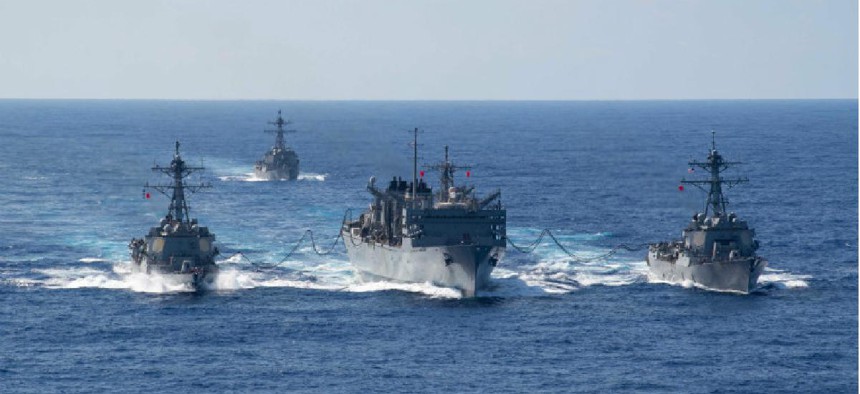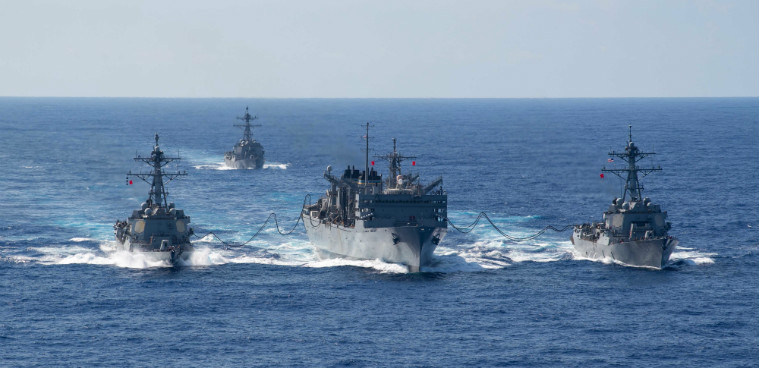Navy research funds could see scrutiny, secretary says

Navy Secretary Richard Spencer warned certain activities could suffer in "constrained" resource environments.

Zero-based budgeting, meet continuing resolution.
At an Oct. 23 Brookings Institution event, Navy Secretary Richard Spencer said the Office of Naval Research could see increased budget scrutiny in "constrained" resource environments.
"The [Office of Naval Research] in general all of research in the Navy has been a tremendous asset. As we get to these constrained resource environments we're going to have to have everyone singing for their dinner [or program] to make sure that the dollars we're putting out there are correct," Spencer said.
The comments mirror Spencer's remarks to the Senate Armed Services Committee in April, when he told lawmakers that the Navy was adopting a budget discipline similar to the Army's "night court."
"Navy goes through a similar process every single budget cycle, although this next cycle that we're doing, we're actually calling it zero-based budgeting, where we are zeroing everybody out, and everyone has to come in and sing for their dinner, as to their requirements," Spencer said at that April 9 committee hearing.
At the Brookings event, Spencer explained how zero-based budgeting plays out in the real world of the Navy's priorities.
"Should we be investing in AI development inside the Navy or should we be looking at what's going on outside in the commercial sector?" Spencer said. "These are the kinds of discussions we're going to have to have. Should we be working on fuel efficiencies when in fact you have a whole capital market — capital market field-driven organizations in the energy field working on fuel efficiencies. We have to rationalize this."
The secretary's comments come after the Marine Corps Commandant Gen. David Berger said a program-by-program review would be unlikely. Spencer's comments also hit while the government is under a continuing resolution that expires Nov. 21 and Congress is considering additional stopgap funding to stay open into 2020.
The Navy secretary also lambasted Congress on budget constraints, particularly Rep. Elaine Luria (D-Va.), who criticized delays affecting the USS Gerald Ford aircraft carrier during a House Armed Services Committee Subcommittee on Readiness hearing Oct. 22. Spencer called Luria's comments "disparaging" and unhelpful.
"Unfortunately, I truly believe that the Hill now believes that the DOD can handle CRs with absolutely no problem at all," he said. "One of the problems is we do adapt."
Spencer reiterated a past talking point that CRs cost the Navy $4 billion from 2011 to 2018, saying it was a double standard for Congress to "waste" taxpayer dollars but criticize program delays.
"So when I get accused of a cost overrun … and they go and burn $4 billion, I'm confused as to who is responsible for wasting or diddling with resources," Spencer said. "It's an atrocity that a CR exists."



